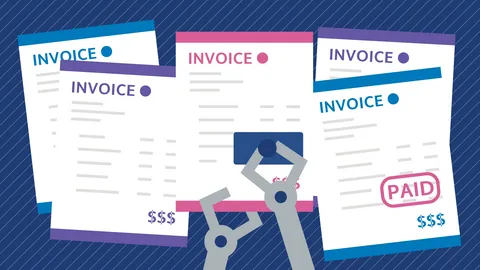Finance
How to Build Wealth Over Time

Building wealth is a journey that requires time, discipline, and Build Wealth a strategic approach. Wealth accumulation is not about making a quick buck but rather about making informed decisions and consistently applying proven financial principles. This article delves into key strategies for wealth building, supported by analysis and comparative tables to illustrate the impact of various approaches.

Image by: https://cdn. pixabay. com
- Understanding Wealth Building
Wealth building is the process of accumulating assets over time through various financial strategies. It involves not just saving money but investing it wisely to generate returns that outpace inflation and increase net worth. Key components include saving, investing, managing debt, and planning for long-term financial goals.
- The Power of Compound Interest
Compound interest is a fundamental concept in wealth building. It refers to the process where the interest earned on an investment is reinvested, so that the interest also earns interest over time. This compounding effect can significantly increase the value of investments.
Example:
If you invest $1,000 at an annual interest rate of 5%, after one year, you will have $1,050. In the second year, you will earn interest on $1,050, not just the original $1,000. Over time, this effect becomes more pronounced.
- Creating a Budget and Saving Strategically
Budgeting is the cornerstone of financial management. By tracking income and expenses, individuals can identify areas where they can save and redirect those funds towards investments or debt repayment.
Savings Strategy:
- Emergency Fund: Save 3-6 months of living expenses to cover unforeseen emergencies.
- Retirement Accounts: Contribute to retirement accounts such as 401(k) or IRA for tax benefits and long-term growth.
- High-Interest Savings Accounts: Utilize high-interest savings accounts for better returns on liquid savings.
Analysis Table:
| Savings Strategy | Purpose | Benefits | Risks |
| Emergency Fund | Cover unexpected expenses | Provides financial security | Low return on savings |
| Retirement Accounts | Long-term retirement savings | Tax advantages, compound growth | Investment risk |
| High-Interest Savings | Maximizing interest on savings | Higher returns than traditional savings | Inflation impact |
- Investing Wisely
Investing is essential for growing wealth over time. Unlike saving, investing involves putting money into assets such as stocks, bonds, mutual funds, or real estate with the expectation of earning a return.
Investment Options:
- Stocks: Ownership in a company, potential for high returns but higher risk.
- Bonds: Loans to governments or corporations, generally lower risk and lower returns.
- Mutual Funds: Diversified investments in various assets, offering moderate risk and returns.
- Real Estate: Investing in property for rental income or capital appreciation.
Comparative Table:
| Investment Type | Risk Level | Potential Return | Liquidity | Time Horizon |
| Stocks | High | High | High | Long-term |
| Bonds | Low | Moderate | Moderate | Medium to Long |
| Mutual Funds | Moderate | Moderate | High | Medium to Long |
| Real Estate | Moderate | Variable | Low | Long-term |
Image by Pexels.com
- Managing and Reducing Debt
Debt management is crucial for wealth building. High-interest debt, such as credit card balances, can erode financial progress. Effective debt management involves:
- Prioritizing High-Interest Debt: Focus on paying off high-interest debt first.
- Debt Consolidation: Combine multiple debts into a single loan with a lower interest rate.
- Creating a Repayment Plan: Establish a structured plan to pay off debts systematically.
Debt Management Table:
| Debt Management Strategy | Benefits | Drawbacks |
| Prioritize High-Interest Debt | Reduces overall interest paid | Requires discipline |
| Debt Consolidation | Simplifies payments, potentially lowers interest | May involve fees |
| Repayment Plan | Structured approach to debt reduction | Can be time-consuming |
- Long-Term Financial Planning
Long-term planning involves setting financial goals and creating a roadmap to achieve them. This includes retirement planning, estate planning, and tax strategy.
Steps in Financial Planning:
- Set Clear Goals: Define short-term and long-term financial goals.
- Develop a Plan: Create a strategy that includes saving, investing, and managing debt.
- Review and Adjust: Regularly review your financial plan and make adjustments as needed.
Financial Planning Table:
| Planning Aspect | Description | Benefits | Considerations |
| Setting Goals | Define financial objectives | Provides direction and motivation | Requires regular updates |
| Developing a Plan | Create a strategy to achieve goals | Structured approach | Needs to be flexible |
| Reviewing and Adjusting | Periodic evaluation and modification | Ensures plan remains relevant | Time-consuming |
- Building Wealth Through Tax Efficiency
Tax efficiency involves structuring investments and financial activities to minimize tax liabilities. Utilizing tax-advantaged accounts and understanding tax implications of different investment strategies can enhance wealth accumulation.
Tax Efficiency Tips:
- Use Tax-Advantaged Accounts: Contribute to accounts like Roth IRAs or 401(k)s.
- Understand Capital Gains Tax: Be aware of how long-term vs. short-term gains affect taxes.
- Employ Tax Loss Harvesting: Offset gains with losses to reduce taxable income.
Tax Efficiency Table:
| Strategy | Benefit | Consideration |
| Tax-Advantaged Accounts | Reduces taxable income | Contribution limits apply |
| Capital Gains Tax | Understand different tax rates | Requires tracking of holding periods |
| Tax Loss Harvesting | Reduces taxable income | Complex to implement |
8. The Role of Financial Education
Financial education is crucial for successful wealth building. Understanding financial concepts, market trends, and investment strategies empowers individuals to make informed decisions. Engaging in continuous learning through books, online courses, or financial advisors can provide valuable insights into managing and growing wealth. For instance, learning about the impact of inflation on investments or how to evaluate different asset classes can lead to more strategic investment choices. Financial literacy also helps in avoiding common pitfalls such as high-fee investments or poor debt management practices. By staying educated, you are better equipped to navigate the complexities of financial markets and adapt to changing economic conditions.
Education Investment Table:
| Education Method | Advantages | Disadvantages |
| Books | Accessible, self-paced learning | May lack practical application |
| Online Courses | Structured, often up-to-date content | Can be costly, variable quality |
| Financial Advisors | Personalized advice, professional insight | May involve high fees, potential conflicts of interest |
9. Building Wealth with a Focus on Health
Wealth building is not only about financial strategies but also about maintaining physical and mental health. Good health can enhance productivity, reduce medical expenses, and improve quality of life, all of which contribute to financial stability. Investing in health through regular exercise, a balanced diet, and preventive care can prevent costly medical bills and lost workdays. Moreover, mental well-being contributes to better decision-making and financial discipline. Creating a balance between work, personal life, and health ensures that you have the energy and focus needed for long-term wealth accumulation. Ultimately, a holistic approach to wealth building considers both financial and personal well-being as integral components of a successful strategy.
Conclusion
Building wealth over time is a multifaceted process that involves understanding the principles of compound interest, strategic saving and investing, effective debt management, and long-term financial planning. By applying these strategies and continuously reviewing your financial approach, you can steadily increase your wealth and achieve your financial goals. The tables provided offer a snapshot of various strategies and their implications, assisting you in making informed decisions as you embark on your wealth-building journey.
Art /Entertainment
Optimize Travel Budget with eSIM and Smart Financial Strategies

Crossing the national boundaries can increase your budget and put stress on your account. And in the end, it may increase your bills; however, you can slash down your bills and make significant changes to your track. And this is how you end up doing things, building your budget to the ultimate satisfaction, where you are more stable.
So this time, if you desire to move abroad, then look into the things that help you save money. And eSIM can be an accurate solution for you to swiftly manage your travel goals in association with the use of your funds.
Get a SIM before you actually step into foreign boundaries. And this will let you help in a variety of ways. However, if you do not have enough money in your pockets to subscribe to your goals, then manage it with your given savings, and balance the remaining gaps with loans.
Consider emergency loans in the UK to take further action and resolve your queries immediately. But it may still be tricky to know where you get such a financial opportunity and bring better outcomes for yourself.
But while you receive loans, it is also important to know how eSIM saves your money ahead of time.

Reasons for Money saving with eSIM:
No roaming cost:
There is no additional roaming cost in your bills, as you already carry an eSIM with you. And this is how you can save a lot of money and manage your financial goals. However, you must be carrying it in advance with you from a reputable center.
And you get the following benefits with the results:
- Saving a significant amount every day from your mobile bills.
- Connect with local contacts at local rates like the residents.
Coordinate with the local residents for your smooth transitions and manage your move swiftly. Take a smooth route to the next step and write down your next steps.
Data plans vary from tier to tier:
You can simply manage your data plans from tier to tier in the given budget. It means you can recharge your phone for a particular pack you need.
If you need a 3 GB internet pack, then you can go for it rather than choosing an unlimited package. And this is how you can make a difference to your finances.
Zero physical SIM fees:
If you carry an eSIM with you, then there are zero physical charges as you pay at the airport. And this is how you can manage your goals by paying zero physical SIM fees.
How to Set Up Your eSIM in Your Mobile Phone?
Setting up an eSIM in your mobile phone may come in handy with the steps you choose one by one. Your attention to the main heads can help you simplify your finances. Take a tour of the steps, and achieve better functioning:
Step 1: Assess if it is working on your mobile phone:
You must know the compatibility of the SIM with your device. Make sure that the version of your mobile set matches it and brings better consequences for you.
And to abide by the minimum requirements, you can look into the carrier-unlocked option. Also, discover that it is based on the right technology and features so that you can access it at ease.
Step 2: Purchase before your check-in:
You must subscribe to an eSIM before you complete your check-in. Find out the portal to buy this aid for your goals and maximize better accessibility for you.
Use your home Wi-Fi and complete your settings swiftly. And this is how you can get free roaming.
Step 3: Scan QR code or reach settings:
Scanning a QR code or clicking on your phone settings can enable you to click on the right functions and access your roaming mode. You can do it directly to optimize your settings and make a difference before you step out.
Step 4: Turn on data roaming:
Once you reach the actual settings, this is the right time to turn on your data roaming, as it is going to practically implement things for you. Understand every gap and make changes that help you to derive better decisions.
Tips While Using eSIM for Data Saving:
While you are using an eSIM for data saving, there are specific things that you must take into account. Considering such things can definitely help you trim down the budget and avoid further hurdles.
Let’s get into the tips for better decision-making:
Use portals from your browser:
You must use portals like WhatsApp and various messaging applications through a browser. Access every portal you require directly from the browser and bring better outcomes.
Download maps online from your search engine:
You can download maps for any destination directly from Google. And this will help you to use the offline mode and minimize the use of the internet.
Save your data usage and simplify your financial management ahead of time. Every right step you take is going to let you make better decisions when you step into foreign boundaries.
5 Tips to Manage Your Emergency Funds on Your Travel!
Tip 1: Borrow from a direct lender:
Get money from a direct lender through an internet query. And this is how you can simplify your finances and make better decisions ahead.
Tip 2: Receive access from your savings account:
Start receiving access from your savings account, which helps you in different scenarios. Determine a budget and stay consistent with it to optimize your financial part.
Tip 3: Ask for support from your close members:
You can request support from your close members seeking money. Check out the available sources and make better decisions ahead.
Tip 4: Break your emergency savings:
If you have saved enough in your emergency bank account, then you can start breaking it for your purpose. Figure out the ways to maximise positive outcomes from your practices.
Your ability to manage your funds brings you better results, so start taking small actions and shape up your experiences.
Tip 5: Use liquid assets:
You can also use your liquid assets to serve your travel purpose. And this is how you end up making better decisions.
The Conclusion:
In the end, you need to use an eSIM for smooth budget management and even explore various ways to optimize your financial freedom.
Borrow money from the right sources and make better decisions ahead.
Business
Resolving Invoice Backlogs with Outsourced Accounts Payable
Business
Working Capital Loans: Collateral Free Loans, Overdrafts, Credit

Each option serves a different purpose and works in a different way. Choosing the wrong option can increase borrowing costs, create repayment pressure, or limit flexibility. Understanding how these funding options compare helps businesses make better financial decisions.
This blog explains how collateral free loans, overdrafts, and cash credit work, their advantages and limitations, and which option may be better for different business needs.

What Is a Collateral Free Loan?
A collateral free loan is a loan where the business does not need to provide any asset or property as security. The lender approves the loan based on the business’s financial performance, credit history, and repayment capacity.
These loans are commonly used by MSMEs, startups, traders, and service providers who may not own assets or do not want to risk them.
In most cases, lenders assess:
- Business turnover
- Bank statements
- Credit score
- Repayment history
- Stability of income
Key Features of a Collateral Free Loan
- No collateral or asset pledge required
- Fixed loan amount
- Fixed repayment schedule
- Faster approval compared to traditional facilities
- Suitable for short- to medium-term funding needs
Collateral free loans are often used for working capital needs such as paying salaries, purchasing inventory, covering rent, or managing temporary cash flow gaps.
What Is an Overdraft Facility?
An overdraft facility allows a business to withdraw more money than what is available in its current account, up to a pre-approved limit. It is linked directly to the bank account and is mainly used for short-term cash needs.
Interest is charged only on the amount used, not on the entire approved limit. Overdraft limits are usually reviewed or renewed annually by banks.
Key Features of an Overdraft
- Linked to a current account
- Interest charged only on utilized amount
- Flexible withdrawals and repayments
- Usually requires collateral or strong banking history
- Annual renewal required
Overdrafts are commonly used by businesses with regular cash flow and a strong relationship with their bank.
What Is Cash Credit?
Cash credit is a working capital facility provided mainly to businesses involved in trading or manufacturing. The loan limit is usually based on stock levels and receivables.
Like overdrafts, interest is charged only on the amount used. Cash credit limits are reviewed periodically and require regular submission of financial data.
Key Features of Cash Credit
- Limit based on inventory and receivables
- Interest charged on utilized amount
- Mostly secured with collateral
- Requires frequent documentation
- Suitable for ongoing working capital needs
Cash credit facilities are widely used by medium-sized and established MSMEs.
Collateral Free Loan vs Overdraft vs Cash Credit: Key Differences
Although all three options support working capital, they differ in structure and suitability.
- Collateral Requirement: Collateral free loans do not require any asset as security. Overdraft and cash credit facilities usually require collateral or a strong banking relationship.
- Approval Time: Collateral free loans are usually approved faster. Overdraft and cash credit approvals take longer due to documentation and assessment.
- Repayment Structure: Collateral free loans have fixed repayment schedules. Overdraft and cash credit facilities allow flexible repayments without fixed instalments.
- Interest Calculation: Collateral free loans charge interest on the full loan amount. Overdraft and cash credit charge interest only on the amount used.
- Documentation: Collateral free loans require limited documentation. Overdraft and cash credit require regular financial reporting and renewals.
- Flexibility: Overdraft and cash credit offer more flexibility in usage. Collateral free loans are less flexible but more structured.
Advantages of Collateral Free Loans Compared to Overdraft and Cash Credit
Collateral free loans offer several benefits, especially for small and growing businesses.
1. No Asset Risk
Businesses do not have to pledge property or assets, reducing financial risk.
2. Faster Access to Funds
Quick approval helps manage urgent cash requirements.
3. Simple Structure
Fixed loan amount and repayment schedule make planning easier.
4. Suitable for Businesses Without Banking History
Newer businesses can access funding without long banking relationships.
5. Less Ongoing Compliance
Unlike OD and CC, there is no need for annual renewals or frequent documentation.
Advantages of Overdraft and Cash Credit Facilities
Overdraft and cash credit facilities remain useful for certain business situations.
1. High Flexibility
Businesses can withdraw and repay funds as needed.
2. Interest on Used Amount Only
This reduces interest cost when the full limit is not used.
3. Suitable for Regular Working Capital Cycles
Ideal for businesses with predictable cash inflows and outflows.
4. Long-Term Availability
Once approved, these facilities can be renewed year after year.
Which Option Is Better for Your Business?
There is no single option that suits all businesses. The right choice depends on cash flow patterns, urgency, and business stability.
A Collateral Free Loan Is Better If:
- You need funds quickly
- You do not own assets to pledge
- Your cash flow is irregular
- You prefer fixed repayments
- You want minimal documentation
An Overdraft or Cash Credit Is Better If:
- Your business has steady cash flow
- You need flexible access to funds
- You have a strong banking relationship
- You can manage regular reporting
- You want to pay interest only on used funds
Collateral Free Loan vs OD or CC for MSMEs
MSMEs often face delayed payments, seasonal demand, and limited asset ownership. Many small businesses find it difficult to meet the requirements for overdraft or cash credit facilities.
For such businesses, collateral free loans provide a practical solution. They offer faster access to funds without the need for assets or long approval processes.
Established MSMEs with stable revenue and assets may still prefer overdraft or cash credit for long-term working capital management.
Common Mistakes Businesses Make While Choosing Working Capital Options
- Choosing flexibility without considering repayment discipline
- Ignoring renewal and compliance requirements
- Overestimating cash inflows
- Using long-term facilities for short-term needs
- Not comparing total borrowing cost
Avoiding these mistakes helps maintain healthy cash flow.
Things to Consider Before Choosing Any Working Capital Facility
Before selecting a funding option, businesses should review:
- Cash Flow Pattern: Understand whether cash inflows are regular or irregular.
- Urgency of Funds: Immediate needs may require faster options.
- Cost of Borrowing: Consider interest, fees, and compliance costs.
- Operational Simplicity: Choose a structure that is easy to manage.
- Business Stability: Long-term facilities suit stable businesses better.
Final Thoughts
Collateral free loans, overdrafts, and cash credit facilities each serve a specific purpose. A collateral free loan offers speed, simplicity, and safety from asset risk, making it suitable for MSMEs and urgent needs. Overdraft and cash credit facilities provide flexibility and cost efficiency for businesses with stable cash flows and strong banking relationships.
The right option depends on business size, financial stability, and cash flow requirements. Choosing based on actual business needs, rather than habit or convenience, helps ensure better financial control and long-term stability.
FAQs
- Is a collateral free loan better than overdraft or cash credit?
It is better for businesses that need quick funds, have irregular cash flow, or do not own assets.
- Do overdraft and cash credit require collateral?
In most cases, yes. Banks usually require collateral or strong financial history.
- Which option has faster approval?
Collateral free loans usually have faster approval compared to overdraft or cash credit.
- Can businesses use more than one option?
Yes, some businesses use a combination based on different needs.
-
Business3 years ago
Cybersecurity Consulting Company SequelNet Provides Critical IT Support Services to Medical Billing Firm, Medical Optimum
-
Business3 years ago
Team Communication Software Transforms Operations at Finance Innovate
-
Business3 years ago
Project Management Tool Transforms Long Island Business
-
Business2 years ago
How Alleviate Poverty Utilized IPPBX’s All-in-One Solution to Transform Lives in New York City
-
health3 years ago
Breast Cancer: The Imperative Role of Mammograms in Screening and Early Detection
-
Sports3 years ago
Unstoppable Collaboration: D.C.’s Citi Open and Silicon Valley Classic Unite to Propel Women’s Tennis to New Heights
-
Art /Entertainment3 years ago
Embracing Renewal: Sizdabedar Celebrations Unite Iranians in New York’s Eisenhower Park
-
Finance3 years ago
The Benefits of Starting a Side Hustle for Financial Freedom































